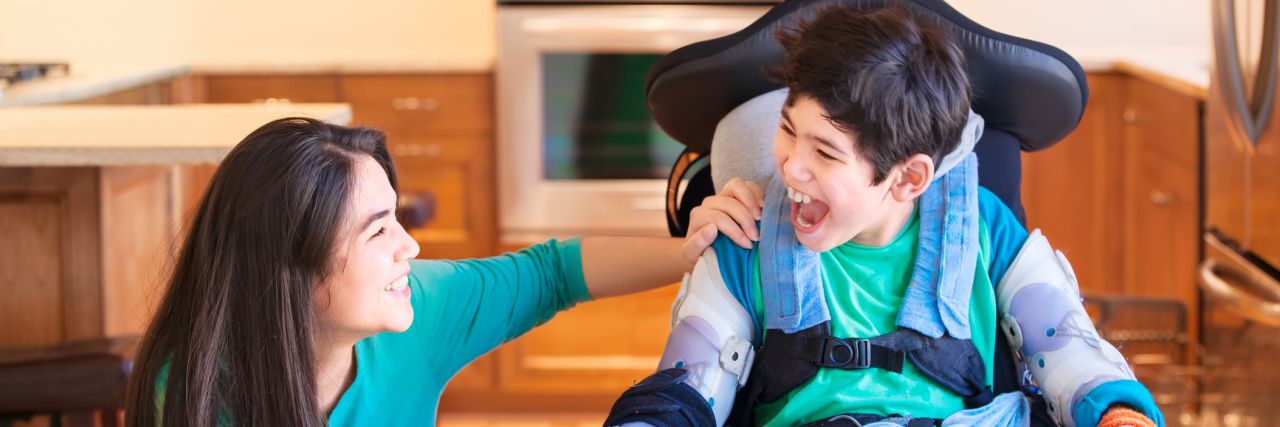I’m sitting in a coffee shop crying; I can’t recall the last time I cried in public, but I’m heartbroken.
It all started with a comment a friend made earlier. As I was waiting for the bus with a few friends and an acquaintance, across the street a child was joyfully running and making the distinct sound of a child with cognitive disabilities or a speech delay vocalizing.
For some people, the sound of child vocalization seems like an accidentally pulled fire alarm or a cell phone ringing in church service — annoying, meaningless noise. But in the countless hours I’ve spent working with “non-verbal” young disabled people, I’ve come to hear these sounds for what they are: communication. Sounds of joy, sounds of pain. Sounds of excitement and sorrow and disappointment and satisfaction. Many people who spent time with non-verbal people have come to be appreciative of these sounds, of the special and distinct way people with disabilities that don’t allow them to communicate with traditional language communicate. They are their ways of marking who they are in the world.
However, the acquaintance with me when I heard the child didn’t understand. “I hate kids! Why can’t they get their child to shut up.” I tried to be understanding with them, “It could be a child with autism,” I remarked. “It probably isn’t,” the acquaintance shot me down. They then went on a rant about their disdain for “loud children.”
At the time, the comment meant nothing, but it slowly ate at me. Is this the way people saw all the kids I had worked with when I was younger? Is this the way they saw my sweet friend Dominic when he had meltdowns when he was younger? Dominic was an autistic person I was friends with. We made many wonderful memories together. Our time was cut too short when he died of heart problems in March. As I spent the rest of the evening going about my business, it ate at me to think that even after all the wonderful things Dominic had done and people he had touched, some strangers’ memories of him could be him vocalizing during a meltdown and them thinking he was an annoying, misbehaving kid. That tore me up inside.
So this is my wish. Could you, whoever is reading this, do one thing? Next time an acquaintance or a friend or even a stranger complains about a kid communicating in a nontraditional way — vocalizing, or talking loud, or crying — could you say: “That’s just how they communicate. It’s OK.”
Could we stop staring at the child on the floor of Walmart crying, or the kid on the bus repeating phrases? Could we not stare at an adult making seemingly random noises? Could we not remember these moments with rage but treat them with understanding? Can we respect that communication takes many forms, and not all forms are traditional and quiet, but they are all valid and not annoyances or inconveniences? It would make it a little bit easier for me to move on from this and have some peace.
We want to hear your story. Become a Mighty contributor here.
Photo by Jaren Wicklund / Getty Images.

